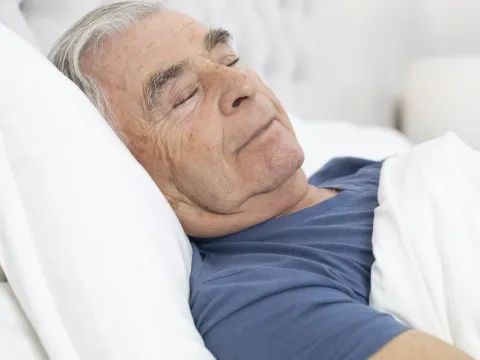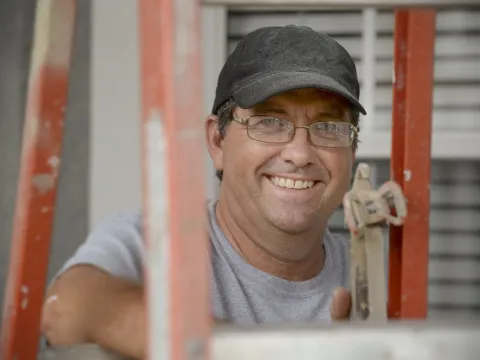- AdventHealth

For most, sleep is something to look forward to at the end of a long day. Pajamas. A good book. And your most comfortable, homey place: bed.
But for 25 million Americans, sleep is a tremendous challenge, and even more, a great health risk with sleep apnea.
If you struggle with sleep apnea, its important to know that there are several treatment options available. Dr. Kiran Tipirneni, board-certified otolaryngologist at AdventHealth, shares new and breakthrough treatments that can offer hope for those patients where conventional treatment has not been successful.
Understanding Sleep Apnea
Sleep apnea is a chronic condition during which the tongue and soft palate collapse while sleeping, causing breathing to stop or decrease for brief periods throughout the night. When this occurs, the brain and body are temporarily deprived of oxygen until breathing starts again.
While some patients may consider it a frustrating nuisance or a bad case of snoring, the lack of oxygen caused by sleep apnea is a serious health condition that, left untreated, can lead to problems like hypertension, diabetes and stroke.
According to Dr. Tipirneni, even though sleep apnea is a highly treatable condition, some patients don't always respond to standard treatment methods.
Treatments for Sleep Apnea
"A CPAP (Continuous Positive Airway Pressure) device, which is a machine that pushes air through a mask into the nose and/or mouth, is considered the gold standard for treating sleep apnea," Dr. Tipirneni said. "It's typically the first-line treatment that is tried and if the patient can tolerate it, they can continue using it indefinitely."
However, up to 50 percent of all patients don't tolerate the CPAP, primarily because they can't get used to sleeping with it, or the obstruction is too severe and the airway doesn't open.
Fortunately, alternative options are available, including oral devices that are placed in the mouth to gently push the lower jaw, tongue and soft palate forward, clearing the airway for improved airflow.
"If that treatment isn't successful, we would start to explore surgical options," he said. "With newer site specific procedures that have been shown to be very effective, we can realign the palate and tonsils, reduce the size of the uvula, and adjust tongue position so that these problem areas no longer obstruct the airways.
Breakthroughs in Sleep Apnea Treatment
According to Dr. Tipirneni, some of the more recent breakthroughs in sleep apnea treatment are proving to be highly effective. For example, as most sleep apnea patients are aware, diagnosing the problem typically starts with a sleep study, during which the patient sleeps while wearing electronic sensors that provide doctors with data on the patient's sleep patterns and extent of their apnea, but the specific site or sites of obstruction are not able to be identified without also performing a sleep endoscopy.
"During a sleep endoscopy, the patient is given intravenous sedation to induce snoring and apnea and, while they are sleeping, we can thread a fiberoptic endoscope through the nasal passage until we find the precise location of the obstruction. This allows us to customize any surgical procedure to address the specific site(s) of the sleep apnea."
Physicians also have a relatively new form of treatment for sleep apnea, known as Inspire therapy. He described this treatment as similar to a pacemaker, but for the muscles that regulate airflow.
"With Inspire therapy, an electrode is surgically implanted on the nerve to the muscles that control the tongue to deliver mild stimulation to those areas," he said. "This causes the muscles and soft tissues of the throat to contract, keeping the airway open throughout the night. Patients have a wireless remote control that allows them to turn it on before going to bed and to switch it off when they wake up. This treatment is FDA approved and has been very effective and has shown excellent results at the three-year follow up."
Hope for Sleep Apnea Patients
Dr. Tipirneni added that, because there are effective options beyond the initial treatments like CPAP, it's important that patients not get frustrated and give up hope. "There's more at stake than a good night's sleep," he said. "By successfully treating sleep apnea, we can also prevent the many dangerous health issues it can cause."
For more information or to schedule an appointment, call Call855-303-DOCS.



